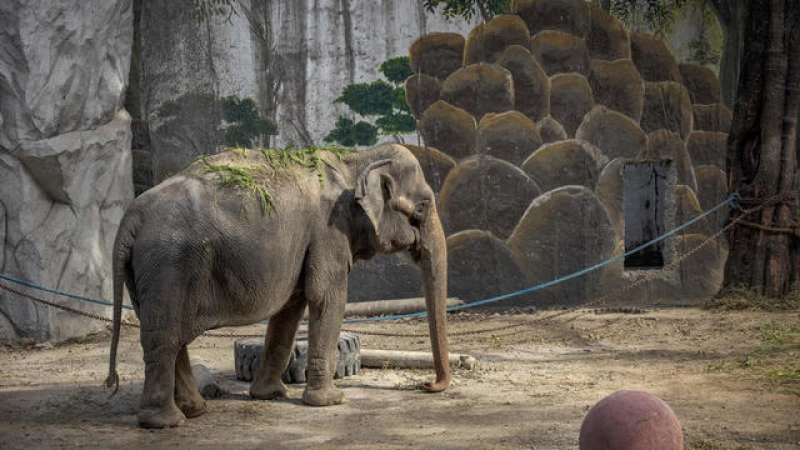World's Saddest Elephant Dies at Manila Zoo
Mali, known as the "world's saddest elephant," has died at the Manila Zoo, the city's mayor announced during a news conference on Wednesday. The Asian elephant earned the moniker because she was the only captive elephant in the Philippines and lived alone at the zoo for decades, according to animal rights group People for the Ethical Treatment of Animals, which has advocated for Mali.
Mali lived at the zoo for about 45 years and caught the attention of Paul McCartney in 2013 when he worked with PETA to raise awareness for the elephant and penned a letter to Philippine President Benigno Aquino III urging the transfer of Mali to an elephant sanctuary in Thailand.
At the time, PETA U.K. said Mali "endures intense confinement, loneliness, boredom and isolation" in an area that is a fraction of the size of her natural habitat.
An elephant sanctuary in Thailand was prepared to take Mali in, according to PETA U.K., but she stayed in Manila, where she was the main attraction at the zoo.
Other celebrities, including Pamela Anderson and Jane Goodall joined the effort to "free Mali."
Elephant Mali Dies at Manila Zoo
At the end of her life, Mali had cancer and was seen rubbing her trunk against a wall, meaning she was in pain, according to a news conference held by the chief veterinarian at the zoo.
Mali was transferred to the zoo from Sri Lanka and following her death, animal rights organization PETA Asia urged the country not to send another one of its animals to Manila.
In a statement to CBS News, PETA Asia said Mali, who was nearly 50, died in her "barren concrete pen," because of "indifference and greed." The organization argued that living in solitary confinement is "torture" for female elephants, as they naturally spend their lives alongside other female elephants and work together to raise their babies.
Despite repeated warnings, zoo and city officials ignored the painful foot problems of Mali, subjecting her to years of suffering, according to a statement from PETA Asia. The Manila Zoo recently announced that Mali had cancer that went undetected by their veterinarians until after her death. The lack of an elephant expert in the country meant that Mali did not receive routine veterinary care that she would have received at a sanctuary prepared to transfer her, as stated by PETA.
PETA Asia believes that those responsible for denying Mali proper care and a different home should be held accountable for their role in allowing her suffering.
CBS News has reached out to the Manila Zoo and is awaiting a response.
According to the UK-based conservation charity People's Trust for Endangered Species, Asian elephants, who are smaller than their African counterparts, have an average lifespan of about 70 years in the wild and 80 years in captivity. The oldest Asian elephant in captivity died at the age of 88 in India in 2019, according to a piece credited to the group for BBC Wildlife Magazine.
However, the Smithsonian National Zoo states that despite consistent data, evidence suggests that Asian elephants typically live into their mid-50s, with a median life expectancy of 47 years for female Asian elephants.







